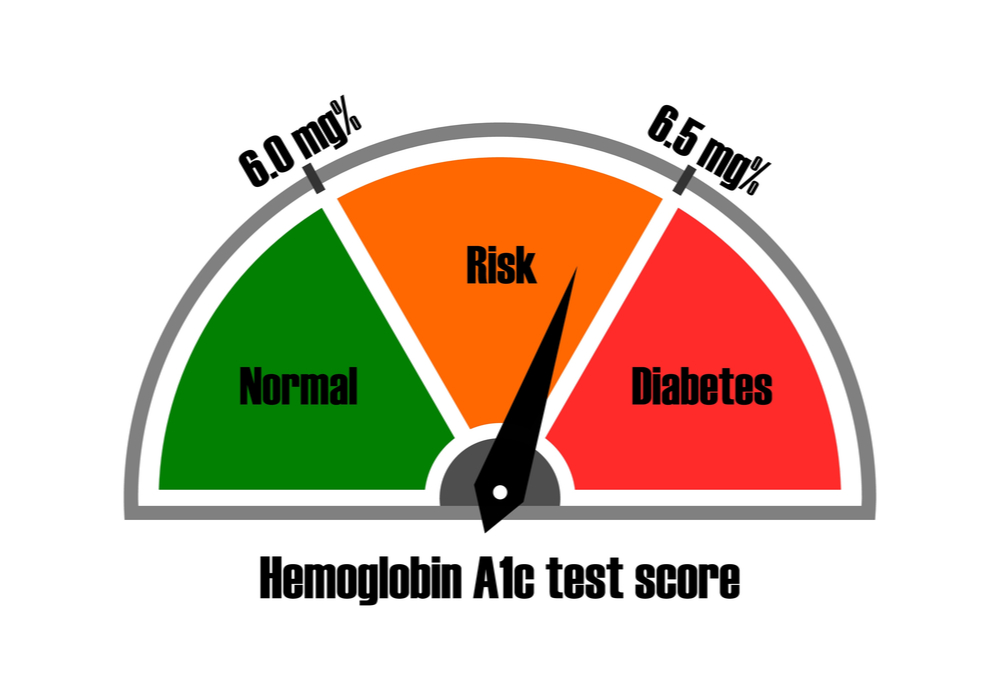
When we talk about diabetes, it is a condition in which blood sugar levels are not stable. This problem of diabetes might happen because of the body’s inability to make any or enough (adequate) insulin or use insulin effectively. For a diabetic person testing his or her blood sugar level regularly is very important. Because of the high blood sugar level. High blood sugar levels can also cause different diseases. So, to keep track of your diseases, there is another way apart from the blood test. The other is by checking your urine can help you identify diseases such as kidney disease or severe high blood sugar problems.
Why should you have a urine test for diabetes?
Urine testing is important, and it can be part of routine checkups of a diabetic person. Urine testing helps to understand the amount of glucose and ketones present in the human body. The test analysis was then used to identify whether the person is diabetic or not. If the urine test is conducted and, in the end, the presence of glucose or ketones there (any one of them) then indicates that the body is not making enough or sufficient insulin.
In some cases a diabetic person, they have medications that can cause the rise in the sugar level, and it might be present in the urine, moreover, a person can go through for the ketones level, it can also give your insight about the status of the glucose conditions of your body.
Test for kidney disease
The data shows that about one-third of the people who are diabetic or are diagnosed with diabetes have problems with their kidneys. If the right steps and proper management of the problems are not taken into consideration, then it might cause life-threatening problems. If the early and proper control for these problems that are related to the kidney organ is taken into consideration then there will be no problems that can happen to certain body organs, and they can work as they need to. The proper and early control of your blood sugar level and taking some medications to regulate it might even reduce or lower the chances of developing kidney problems.
Earlier, it was the basic method to check and monitor the blood sugar level of an individual. The presence of glucose and ketones determines whether the person is diabetic or not. Testing through urine tests is not as commonly used these days as compared the earlier times. Moreover, there are different and quick ways that help to determine the blood sugar level of the individual. These days to diagnose patients with diabetes, the doctor prefers to use the blood glucose test. Blood tests, on the contrary, are more precise and accurate. They can provide the exact amount of data.
What is urine ketone testing?
Urine ketone testing is a test that is used in the case of people who are diagnosed with type 1 diabetes. Type 1 diabetes is also known as juvenile diabetes, it is a condition in which the pancreas is unable to produce the right amount of insulin. This will result in serious thirst, frequent urination, and sudden weight loss or weakness. The ketone testing is done on a person;
- If he or she has a high blood sugar level.
- If he or she is sick.
- If they have symptoms such as diabetic ketoacidosis (DKA). It is an acute complication of diabetes.
Therefore, ketones are used to determine the value of the presence of insulin in the blood which is secreted by the pancreas. The urine test can be done at home also, you can check your ketone level with the help of a urine test kit. If the person’s results match the description that is given above or if he or she has any of the symptoms of DKA (diabetic ketoacidosis). Diabetic ketoacidosis is a genuine problem, and it comes under the category of type 1 diabetes. The DKA situation happens when the blood sugar level of an individual is very high and apart from being high, it is very acidic as well due to the presence of the acidic substances that are produced and reach the dangerous level in your body. DKA only happens when there is not enough insulin present in the body.
Therefore, people who are suffering from type 1 diabetes can go for urine and have a test if they;
- Have blood sugar levels over 300 milligrams per deciliter (mg/dL).
- Have symptoms of diabetic ketoacidosis (DKA), an acute complication of diabetes.
Given below are some of the following symptoms of DKA:
- Vomiting or feeling nauseous.
- Having high sugar levels regularly.
- If feeling sick (such as with flu, or with an infection)
- Feeling exhausted every time.
- Excessive thirst and having a dry mouth most of the time.
- Frequent urination.
- Having breaths that smell fruity
- Having the feeling of delusion or confusion
Note: if you are going through pregnancy and have a past with gestational diabetes. Then it is advisable to have a urine test. Otherwise, if someone is exercising then it is also advisable to have a urine test.
If a person is diagnosed with type 1 diabetes, then his or her doctor might recommend having their ketone test done to check the status of their ketone’s levels. But if the diabetes of the person is well maintained or managed then it is not required to check their ketones level regularly.
What will be the procedure to prepare for a urine test?
First, it is highly recommended that one should drink enough water before the test so the person can have an adequate sample of urine. After this, tell your doctors about all the medications as well as supplements that you are taking. Then you need to provide a sample of your urine at the doctor’s office for the checkups. Apart from this, some kits can be used to conduct urine tests at home, and it is much safer compared to the tests that are done at the doctor’s office. You need to follow the instructions that are provided by your doctor, you need to follow these instructions very carefully. For instance, instructions can be:
- You will be having a plastic cup labeled with your name on it.
- You need to go to the bathroom and then urinate in that cup.
- After collecting your urine sample, place the lid on the cup.
- Then take the cup to wherever your doctor wants to.
Apart from having the urine test at the doctor’s office, you can also check your ketone level by conducting the urine test at home. You can easily find the urine testing kit at any pharmacy without any prescription. Carefully go through the directions. You can follow these steps to conduct the test at home with the help of those urine testing strips;
- Read the instructions or directions carefully.
- Urinate into the clean container.
- Then dip the strip into the urine.
- Shake the strip after dipping it into the urine.
- Wait till the strip changes its color.
- Compare the color of the strip with the one given in the packaging to understand the results.
What do the results mean after conducting the test?
The results simply denote the value of the availability of the substances such as glucose and ketones in the urine. Healthy people do not have glucose in their urine. Moreover, the urine test does not provide insight into your blood sugar level; it will give you information about the spillage of glucose in your urine.
Whereas ketone level simply shows the availability of having type 1 diabetes. Hence, again it does not indicate the blood sugar level of the individual.
If we come to the reading part of the test, the reading part has 3 levels.
These levels are as follows;
- Small to moderate: having a ketone level of 0.6 to 1.5 mmol/L (10 to 30 mg/dL) is considered small to moderate.
- Moderate to large: if the ketone level lies from 1.6 to 3.0 mmol/L (30 to 50 mg/dL) it is considered moderate to large.
- Large: if the ketone level is found to be greater than 3.0 mmol/L (50 mg/dL) then it indicates that you have DKA. This is a life-threatening condition and requires immediate medical treatment.
Other than this, the ketone level in the urine also includes symptoms such as;
- Vomiting
- Nausea
- Confusion
- Breath odor is described as fruity.
Ketoacidosis can be life-threatening; it can cause brain swelling, coma, and even death if not treated.
How can one manage the A1c levels?

If a person is in the early stages of type 2 diabetes, then, he or she needs a little change in his or her lifestyle and it will make a very big difference. It can even lead to the remission of diabetes. One can do daily exercise and follow a healthy routine to avoid the circumstances of having type 1 or 2 diabetes. You can also use the medication if you are already taking any. If the person does not take any necessary precautions, then prediabetes can turn into diabetes, and it becomes the worst nightmare. Therefore, ask your doctor to have proper medical checkups. And one can go for the prescription and follow the guidelines provided by their medical expert.
Read Also:
What Do You Need to Know About Diabetes Type1
Diabetes Type 2: Symptoms, Causes & Treatment Options
Gestational Diabetes: Everything You Need to Know About it
All About Symptoms of Diabetes
5 Most Common Causes that Lead to Diabetes
Blood Sugar or Diabetes Testing
What is the Effect of COVID-19 on Diabetic Patients
How Do Check Blood Sugar Level?
Hepatitis D: How Does It Affect Diabetic Patients
Disclaimer: “HealthLink.news does not have any intention to provide specific medical advice, but rather to provide its users and/ or the general public with information to better understand their health. All content (including text, graphics, images, information, etc.) provided herein is for general informational purposes only and is not a substitute for professional medical advice, care, diagnosis, or treatment. HealthLink.news makes no representation and assumes no responsibility/ liability for the accuracy of the information, advice, diagnosis, or treatment provided herein or on its website. NEVER DISREGARD PROFESSIONAL MEDICAL ADVICE OR DELAY IN SEEKING TREATMENT BECAUSE OF SOMETHING YOU HAVE READ IT HERE OR ACCESSED THROUGH THE HealthLink.news WEBSITE.”
